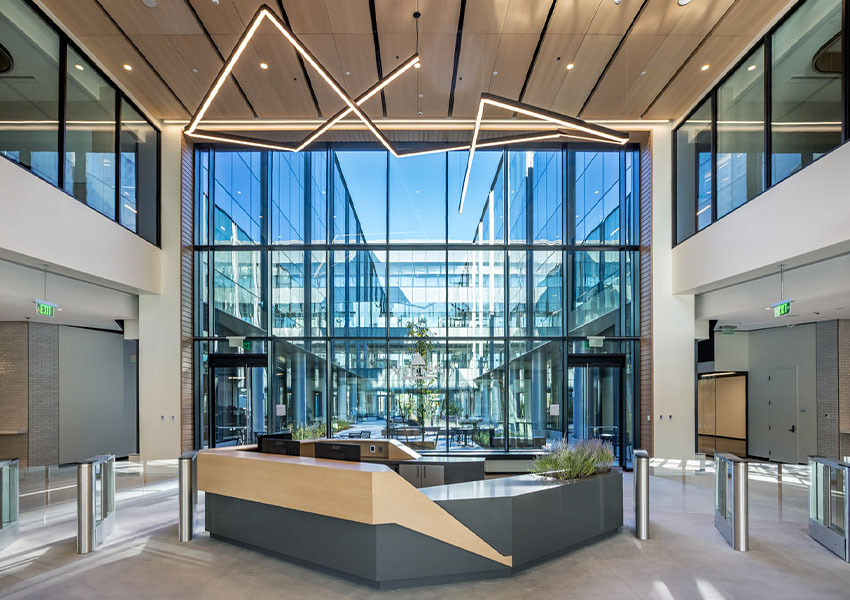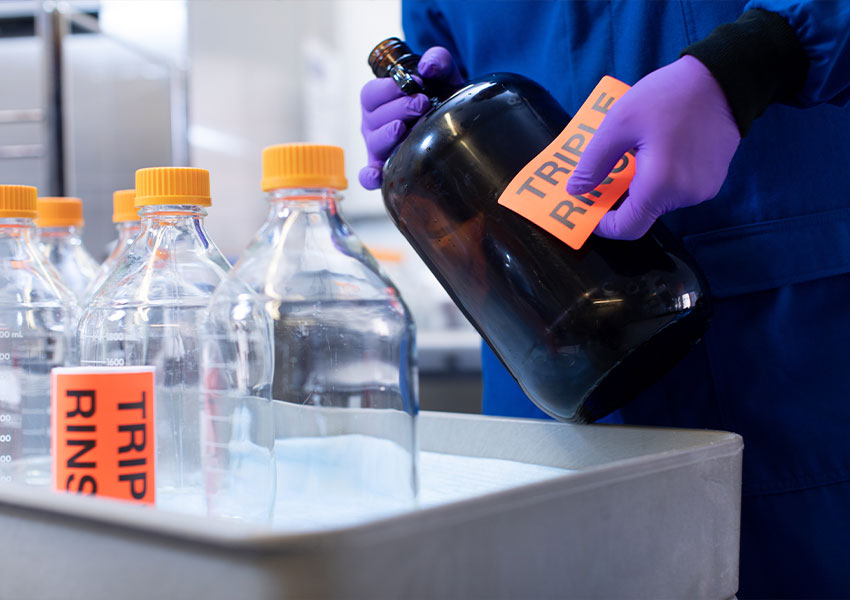At Vertex, we’ve taken a global approach to carefully manage our environmental footprint.
We are committed to doing our part to mitigate climate change by managing our greenhouse gas (GHG) emissions: setting ambitious targets, closely tracking our emissions, achieving reductions and reporting progress. We're proud to receive a leadership score of an A- from CDP (the global average score is C). CDP is a nonprofit organization that evaluates more than 23,000 organizations on how they measure and manage environmental impacts, and its global disclosure system is considered the gold standard of environmental reporting.
Our strong rating demonstrates our efforts to address the environmental footprint of our business. This includes reducing absolute GHG emissions by more than 51 percent over the last 10 years.
Collaborating globally, our Environmental Health, Safety & Sustainability; Corporate Responsibility; and Facilities Operations and Engineering teams, as well as employee-led Green Teams, work together to develop and implement a sustainability program that guides our overall corporate efforts.

Green buildings
In Boston, the Jeffrey Leiden Center for Cell and Genetic Therapies (Leiden Center) maximizes energy and water efficiency and reduces overall GHG emissions from its operations. For example, by using reverse osmosis, we’re able to reduce water consumption that the building uses to support our HVAC system.
In December 2023, the Leiden Center received the Platinum award for LEED Interior Design and Construction, V4.1, making it one of the first life sciences buildings in Massachusetts to achieve this level of certification. The Platinum award is the highest LEED rating from the United States Green Building Council.
Our San Diego research site is Gold LEED certified, and the site’s solar panel array provides approximately 8 percent of electricity annually. To put that number into perspective, we are avoiding 280 metric tons of carbon dioxide emissions in California — equivalent to 314,972 pounds of coal burned in a year or 720,835 miles driven in a year.
In the U.K., our international headquarters in London and our research site in Oxford each source 100 percent renewable energy. To tackle energy reduction at our research sites, for example, we’ve worked to increase the efficiency of lab operations by optimizing ventilation and fume hood air flows.
Waste reduction
We’re also committed to repurposing and reusing. Here are some interesting 2023 facts:
- 6,000 pounds (about the weight of an elephant) worth of gowns, hairnets and gloves from our Vertex Manufacturing Center site were turned into plastic lumber and pellets used to make landscaping materials, pallets and park benches.
- 90 percent or 81,048 pounds of biomedical lab waste from the Leiden Center was repurposed into sustainable materials for landscaping and construction.
- 61 yards — just over half of a football field — of Styrofoam and 2,377 pounds of nonhazardous plastic were recycled from biology research labs at our Fan Pier headquarters.
Sustainability in our labs
Three Vertex labs sought and achieved My Green Lab® (MGL) certification in 2023. MGL is a nonprofit organization recognized globally as the leading standard in lab sustainability best practices. The labs were evaluated on their infrastructure energy, cold storage, recycling and more. Boston labs received Platinum and Gold MGL certifications and Oxford earned a Green certification, which is the highest award level.
A continued focus in San Diego has been on improving process efficiency in labs. By switching to large containers for high-use solvents and an automated dispensing system, we’ve been able to significantly reduce the waste, transportation and fuel usage associated with using smaller bottles.

What’s next?
As we scale for the future, we are holding ourselves to even higher standards. By building upon our existing efforts, we plan to further reduce GHG emissions through managing energy, investing in green energy and building sustainability. It’s vital that we do our part to mitigate climate change, protecting the Earth for future generations.

